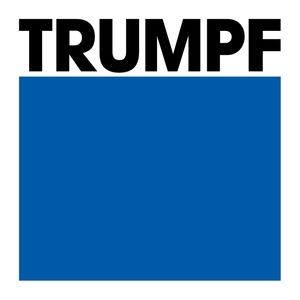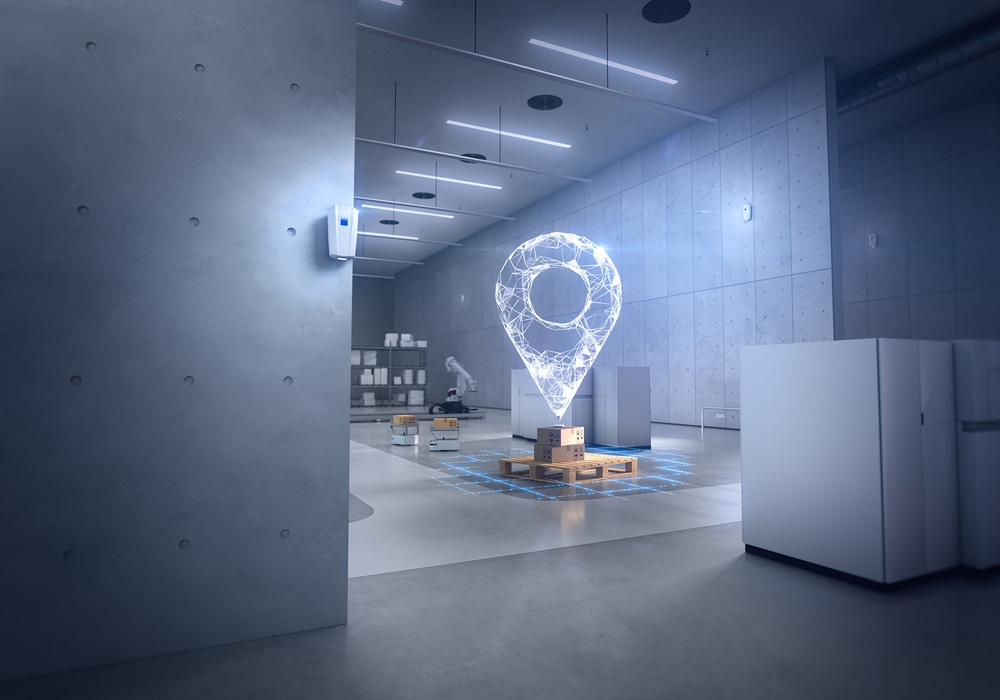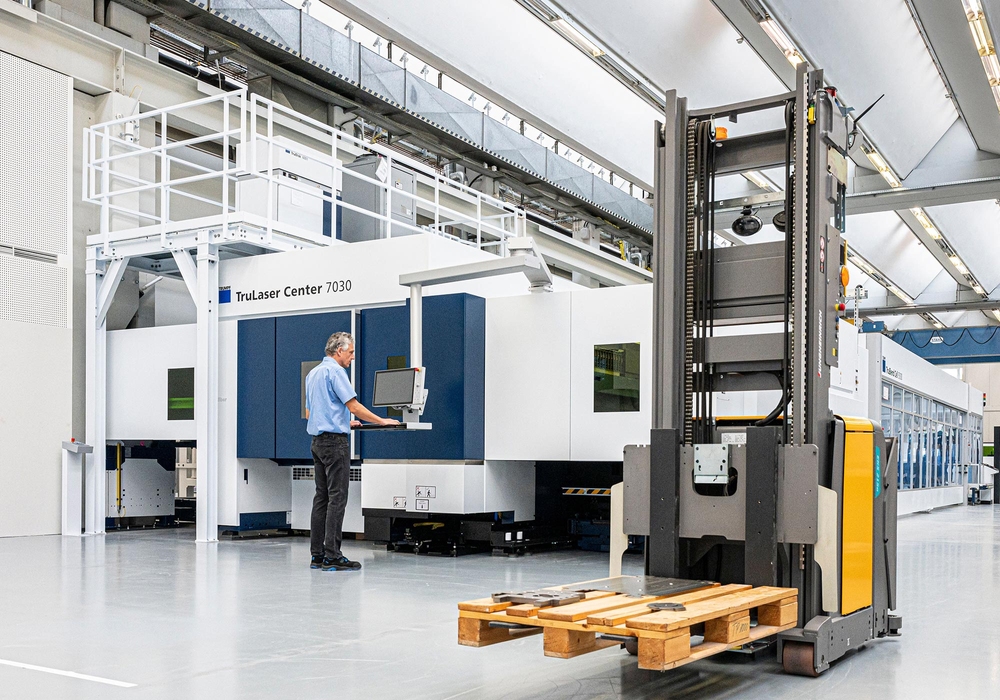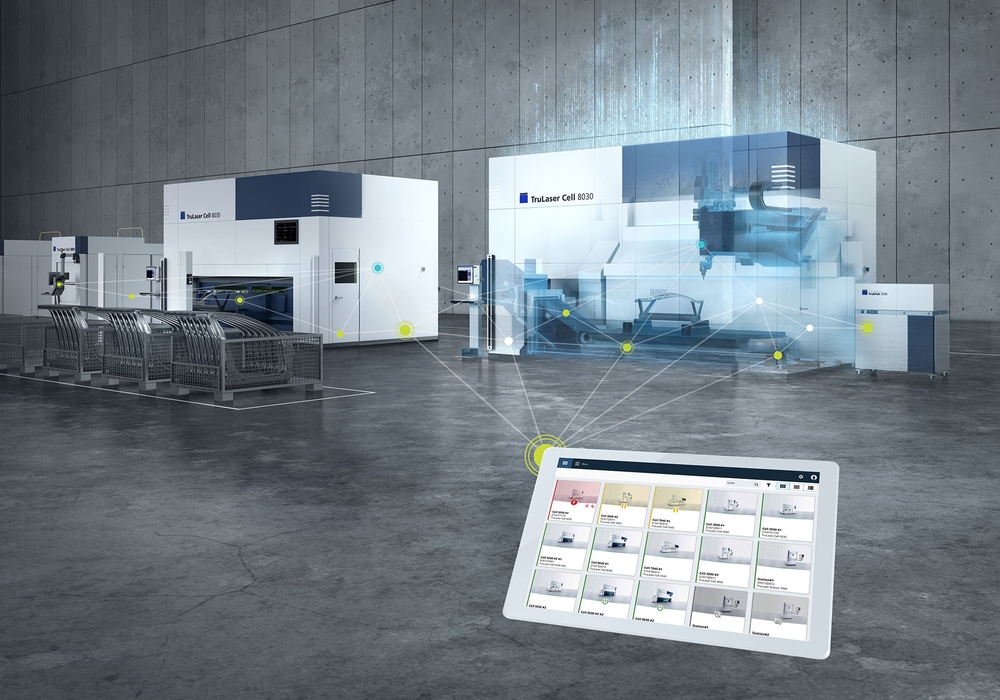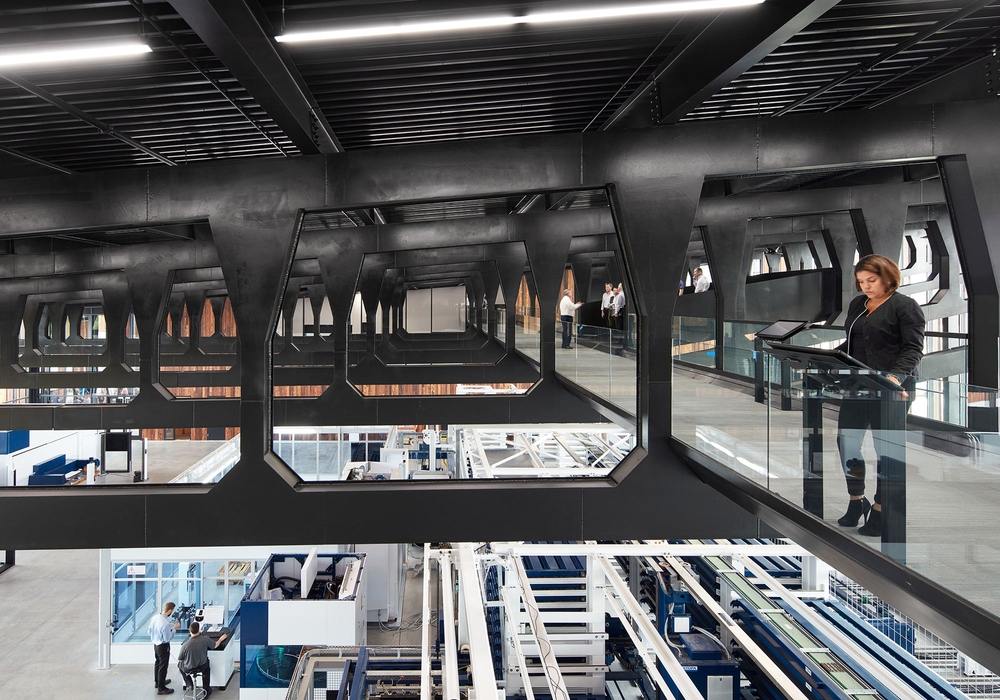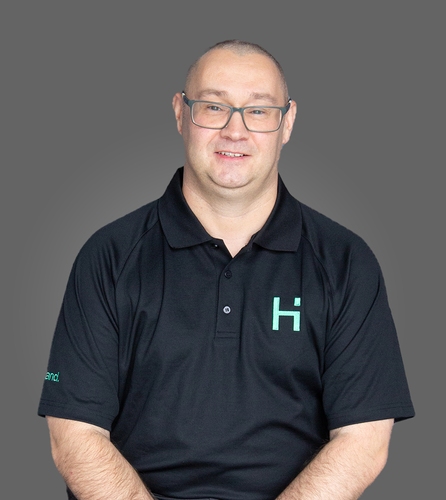Industry 4.0 and the rise of smart manufacturing are transforming factories around the world. Smart factories utilise the latest technologies like artificial intelligence, IoT sensors, and advanced analytics to create highly connected, automated, and self-optimising production systems. This offers numerous benefits including improved quality control, increased efficiency, lower costs, and the ability to rapidly respond to changing demands.
One leader in delivering smart factory solutions is TRUMPF, a high-tech machine tool manufacturer based in Germany. Their “Oseon” digital platform is an end-to-end system that connects manufacturing machines, and analyses data to optimise processes.
Smart Factory production environment in which people, machines, automation and software work together in perfect harmony
Industry 4.0 technologies have the potential to significantly impact the manufacturing sector. Within manufacturing, there are several specific sub-industries and areas of focus that show great promise. For instance, in aerospace and defence, precision engineering, advanced materials, and stringent quality standards make it an ideal candidate for adopting Industry 4.0 practices. Similarly, in the pharmaceutical and biotechnology sectors, manufacturers can benefit from Industry 4.0 by optimising batch processes, ensuring regulatory compliance, and accelerating drug development through data-driven insights and automation.
Headland enabling smart manufacturing capabilities to factories in Australia & New Zealand
As Australian or New Zealand manufacturers look to upgrade their facilities, TRUMPF’s Oseon smart factory system offers tremendous advantages. Headland is proud to be the exclusive distributor of TRUMPF’s world-class equipment in Australia and New Zealand. Furthermore, Headland has a dedicated applications and software team to conduct smart factory consulting services for smart factory implementations while seamlessly integrating TRUMPF’s cutting-edge Oseon 4.0 smart factory technology.
Smooth flow of materials even without large-scale storage
Limited Efficiency: Without automation and data integration, manual processes can be slower and more prone to errors, leading to decreased efficiency in production processes.
Higher Costs: Traditional manufacturing methods often involve higher labour costs due to manual operations and increased material waste from inefficiencies.
Lack of Competitiveness: Competitors who have adopted Industry 4.0 technologies may outperform non-adopters in terms of productivity, quality, and responsiveness, making it harder for traditional manufacturers to compete.
Inability to Meet Customer Demands: Industry 4.0 enables greater customisation and faster response times to customer demands. Without these capabilities, small to medium manufacturers may struggle to meet evolving customer expectations.
Limited insights: Without data analytics and real-time monitoring, manufacturers may lack insights into their processes, making it difficult to identify areas for improvement and optimise operations.
Risk of obsolescence: As Industry 4.0 technologies become more widespread, manufacturers who do not adopt them risk becoming obsolete or being left behind by competitors who leverage these advancements to gain a competitive edge.
Difficulty in scaling operations: Manual processes may limit a manufacturer’s ability to scale production efficiently, especially during periods of increased demand.
Quality control challenges: Traditional manufacturing methods may lack the sophisticated quality control mechanisms offered by Industry 4.0 technologies, leading to higher rates of defects and rework.
Supply chain disruption: Industry 4.0 technologies facilitate better supply chain management and visibility, reducing the risk of disruptions caused by factors such as delays or shortages.
Regulatory Compliance Issues: Compliance with industry regulations and standards may become more challenging without the data tracking and reporting capabilities provided by Industry 4.0 technologies.
Production control perfected with Oseon 4.0 solution from TRUMPF
A key component of Oseon is the production and material flow control system. This gives users a comprehensive overview and control over their entire production process flow. Oseon generates information at every point in the production chain and delivers it to users based on their roles. This ensures managers, machine operators, and other personnel receive the data they need precisely when they need it.
Standard interfaces allow Oseon to easily integrate with existing equipment and systems. The software combines production scheduling, control, and logistics into a seamless flow of information across the whole factory. This transparency optimizes processes, uncovers cost savings, and enables smarter supply chain decisions.
Oseon Go digitises core production processes, while Oseon Grow expands this to storage, logistics, and other interfaces. Oseon Flow then networks everything together into a complete end-to-end smart factory solution.
Are you ready to revolutionise your factory’s operations and unlock its full potential with smart capabilities?
We work closely with clients to understand their specific manufacturing challenges and find the best solutions to improve your sheet metal processes, boost your productivity, and drive your profitability. The system is flexible enough to work with both existing and new machines. Key features like preventative maintenance and energy monitoring further optimise operations over time.
Contact our smart factory experts at Headland for a step into smart manufacturing today.
